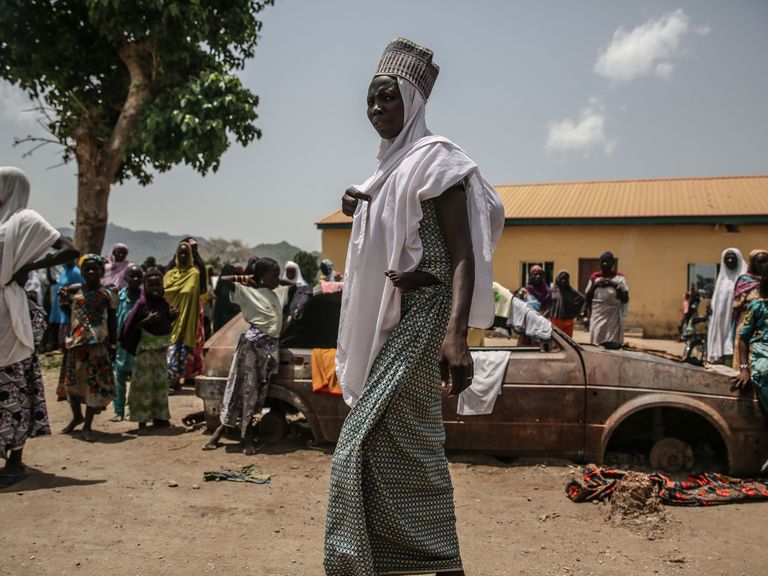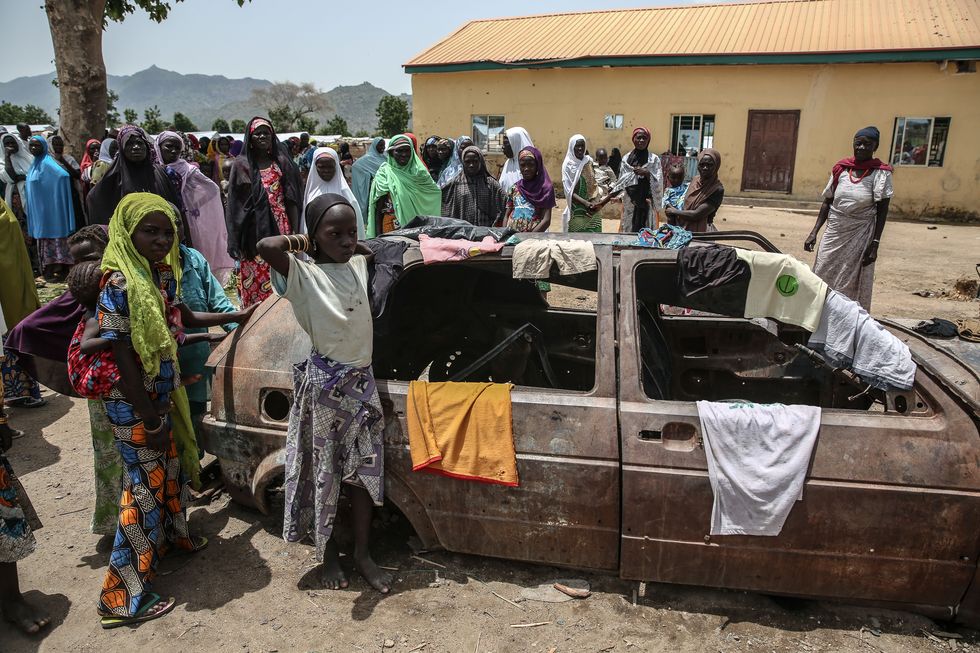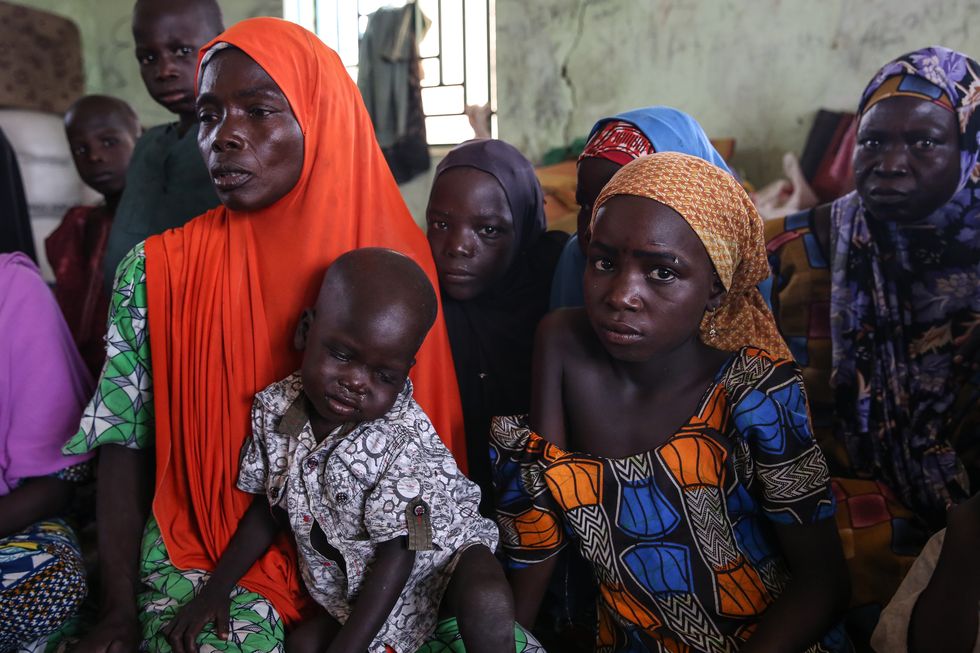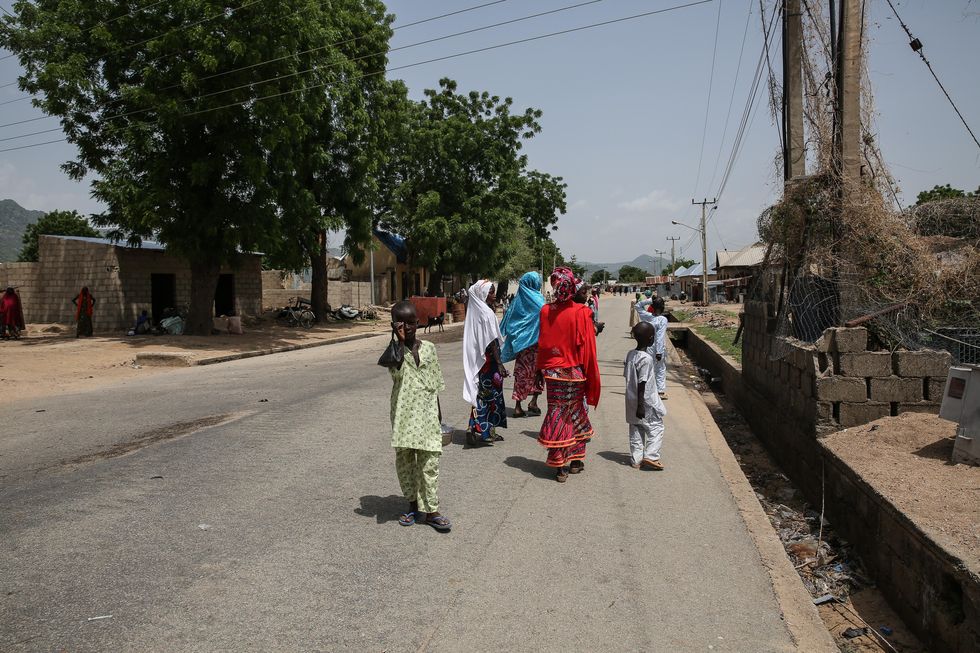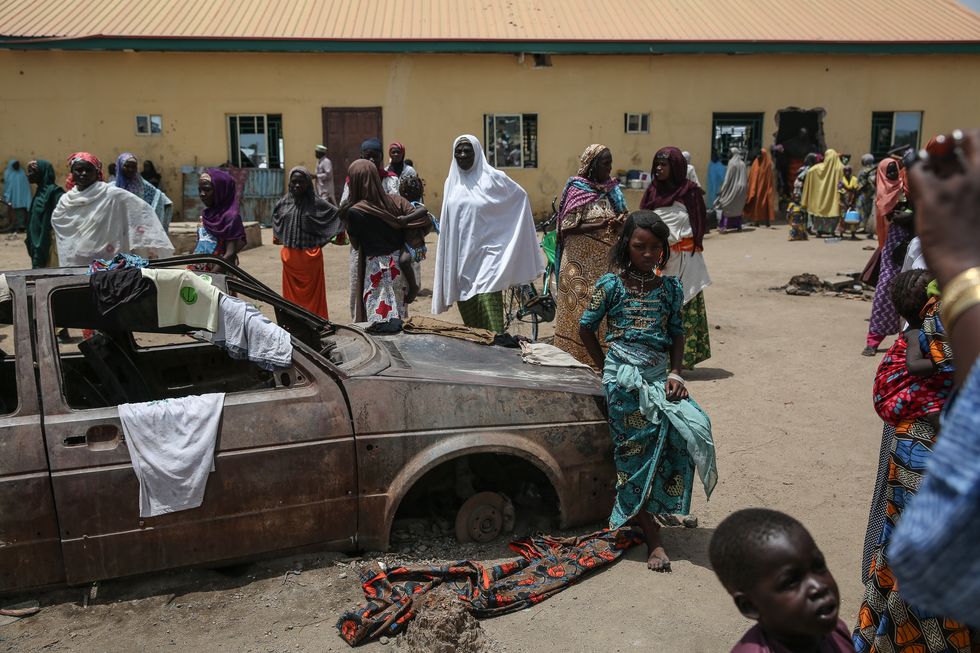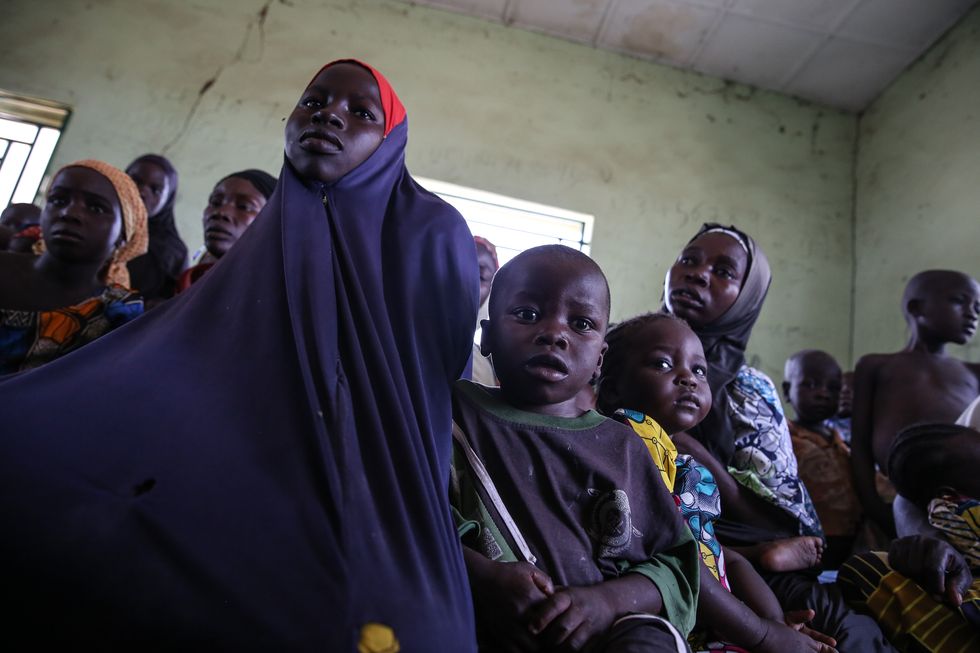On a muggy, hot night in late June, I stood in a gated compound in the northeast Nigerian city of Maiduguri listening to a series of bombs going off in different directions around me. Each time one sounded, I started. Each time, I knew at least one life had been extinguished.
Suicide bombings are becoming more and more regular in Maiduguri as Islamic terrorist group Boko Haram loses territory. After the usual shock and scramble to help those injured, it takes a while for the military and police to assess what's happened, but the revelations the next day weren't a surprise. There were seven bombers in total; five of them were girls or women.
On the outskirts of the city, two of those women entered a residential building before setting off their explosives, killing eight people. Later, on the campus of the city's biggest university, two more detonated their bombs, killing only themselves. The fifth died from injuries sustained while attempting an attack - though the military didn't specify who caused them.
Women and girls have become the weapon of choice in a war that has been vastly ignored in Europe, but has caused immeasurable destruction in west Africa. The death toll from eight years of conflict is now approaching 100,000, according to officials.
Tens of thousands have been kidnapped and millions forced from their homes. But it's impossible to understand the level of barbarity displayed by Boko Haram's leadership without looking at the fragility of the attackers and the societal lack of women's rights which led them to be victimised like this.
How many women have acted as bombers?
A study by the Combating Terrorism Center at West Point and Yale University examined 434 suicide bombings carried out by Boko Haram between 2011 and June, 2017. Of the 338 cases where the attacker's gender could be determined, 244 were girls or women.
Unicef came to similar findings while looking at 84 bombings by minors this year. The majority were done by girls, usually under 15. Rather than label these 'suicide bombings', Unicef calls them 'human bombs', pointing out that these children are victims too.
As Boko Haram lose territory, it's clear the front lines of the war have moved from rural battles between militants and soldiers to places some consider sanctuaries - universities, churches, mosques and markets - with women and children deployed as weapons.
'It is definitely devastating. A gut wrenching feeling to think more and more women are being used as suicide bombers,' said Fati Gangaran, a young photographer from Maiduguri who documents ordinary life amid the conflict through her Instagram account Bits of Borno.
'They [terrorists] just want to instil fear in the community and ensure we are still aware of their power over us.'
Secular and religious groups all over the world have used female suicide bombers in the past, in countries such as Lebanon, Afghanistan, Israel, India, Iraq, Pakistan, Sri Lanka, Russia, Uzbekistan, Somalia, and Turkey.
Perhaps the most headline-grabbing were the so-called 'Black Widows' of Chechnya, some of whom attacked to avenge their dead husbands.
Lindsey O'Rourke, an academic who has studied female suicide bombers across the world, found two movements that at some stage used more women than men as suicide bombers - the Kurdistan Workers' Party in Turkey and Chechen separatist groups - however, her work shows the profile of those women was fundamentally different.
They were older, had clear personal explanations for why they were involved and there was no strong evidence of coercion, O'Rourke wrote in 2008. In stark contrast, what Boko Haram is doing stands out as unique and sinister.
Why are women and girls being used like this?
Boko Haram's use of female suicide bombers first began after the kidnapping of the Chibok schoolgirls in 2014, with researchers suggesting the group realised the ability of young female bodies to attract global attention. Quickly, the numbers of women bombers increased drastically. But those on the ground say there are other, more practical reasons to use women too.
'The use of women is mainly from the fact that they are expendable,' said Aisha Yesufu, an Abuja-based campaigner with Bring Back Our Girls - a pressure group set up following the kidnapping of 276 schoolgirls from Chibok in 2014.
'Women are easy targets and they are easily controlled,' she said. 'Especially (in) the northeast of Nigeria women are not given much respect, they are not seen as equals and can easily be cowed into obeying whatever vile instructions are given to them.'
Yesufu - who has been key in forcing the Nigerian government to acknowledge the scale of the crisis - said women are left out of decision-making processes in Nigeria, meaning many aren't used to exercising their opinion.
She said this is particularly true of women who barely attended school. 'They have been programmed to always obey,' she said. 'Keeping the women uneducated or half-educated ensures male dominance over them.'
Unfortunately, the conflict means that the numbers who are uneducated are increasing. Currently, 11 million children are out of school in the northeast, according to UN figures.
Aside from malleability, there's another key tactical reason why Boko Haram use women: access.
'Women are chosen because they have access to places and can easily sweet talk their way into a setting,' Gangaran said.
They can also conceal explosives more easily by wearing loose clothing. In the past, women have carried explosives in a handbag, inside food balanced on their head, or put them in a cloth with a baby.
How do Boko Haram recruit women?
Tens of thousands of girls and women have been kidnapped by Boko Haram militants over the past few years.
Female captives who have escaped the group speak of mandatory indoctrination sessions where Boko Haram would ask for volunteers to go on suicide missions, promising women that they would go straight to heaven if they stepped forward.
In early August, the Nigerian military issued a statement warning that 'heartless and misguided parents' were 'donating' their children to Boko Haram as bombers.
Reports of this began emerging late 2014, when a 13-year-old girl told investigators she was donated to Boko Haram by her father. Militants then threatened to bury her alive if she didn't bomb a market - though she later managed to escape and turn herself in.
Other guardians simply won't turn down an offer of money. Across war-torn Borno State and Adamawa State, former Boko Haram captives told me girls are being sold by their parents for sums of between 100,000 and 400,000 naira (£200-£500), or given in exchange for properties that had been stolen off others.
What impact has it had on women's lives outside Boko Haram?
Many women say they're now viewed with more suspicion, particularly if they're wearing traditional Islamic garments such as the burka and niqab which have been used by bombers to conceal explosive vests in the past. Some complained of being held longer at checkpoints, searched multiple times or of having problems using public transport.
Others said they're constantly hassled walking alone. Members of the CJTF vigilante group - who act as intelligence and security guards around Maiduguri - echoed this. 'When we see a strange woman, we ask where is she going, what is she carrying,' said Babangida Audu.
Even educated young women say they're used to the trauma of the bombings, but their lives have become dull. 'I used to be out all the time, doing this, doing that, but the insurgency put a stop to that,' one told me.
Despite the devastation of the ongoing war, campaigners and locals are still hoping it forces the authorities to recognise the importance of empowering women and giving girls an education.
'The more educated a woman, the more she is aware of her rights,' Gangaran said, pointing out that the insurgency has usurped long-defined gender roles in the northeast in a myriad of other ways.
'Women are forced to become breadwinners and have to fend for their families because a massive percentage of men have been killed. It is making more women independent financially, despite the situation being sad.'
